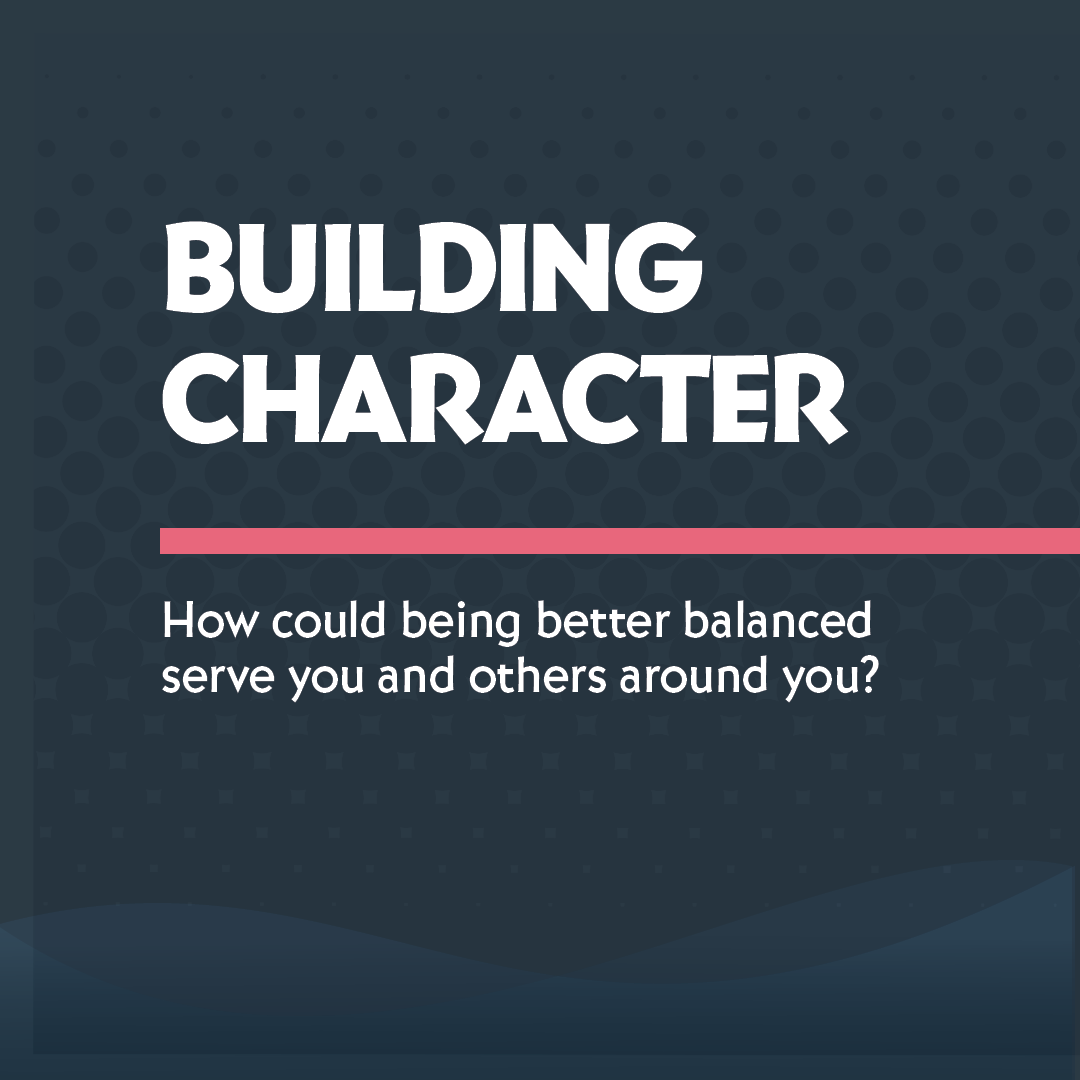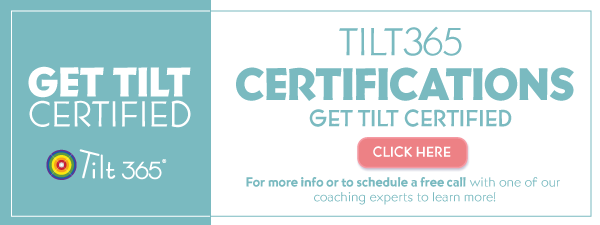Building Character: 12 Key Character Strengths that Develop Generativity

The psychoanalyst Erik Erikson coined the term ‘generativity’, defining it as ‘a concern for establishing and guiding the next generation.’ At Tilt, our mission is to educate people about how to leverage character strengths that shift behaviors from being divisive and polarizing to integrative and sustainable–both of which are elements of generative culture. Simply stated, generativity ensures that a person or institution is concerned with the well-being and success of future generations (and the world as a whole) in a sustainable manner.
We all know people who are the opposite of generative. One example of a behavior that impedes generativity is being dismissive of others' opinions and dominating discussions to win arguments at all costs. Behind this seemingly authoritative behavior lies a subtle fear of the loss of control that is often driven by a hidden fear of vulnerability. In such behavior, energy is focused on satisfying one's own needs and avoidance of unconscious fears and the uncomfortable feelings associated with those fears.
 We often think of aggressive behaviors as the most egregious, but passivity is equally destructive when it comes to generative culture. Someone who seems like a caring, nice person and puts others first might be doing so for self-serving purposes that are less obvious. Behind these seemingly selfless actions may be a subtle fear of conflict that is disguised by seeking approval and acceptance. On the surface, they seem to be nurturing, but also have an ulterior motive that is ego-based. Niceness can be less about working for the good of the other person and more about feeling better about ourselves. As Dr. Aziz Gazipura's book ‘Not Nice’ points out, ‘Being nice does not come out of goodness or high morale; it comes out of a fear of displeasing others and receiving their disapproval.’
We often think of aggressive behaviors as the most egregious, but passivity is equally destructive when it comes to generative culture. Someone who seems like a caring, nice person and puts others first might be doing so for self-serving purposes that are less obvious. Behind these seemingly selfless actions may be a subtle fear of conflict that is disguised by seeking approval and acceptance. On the surface, they seem to be nurturing, but also have an ulterior motive that is ego-based. Niceness can be less about working for the good of the other person and more about feeling better about ourselves. As Dr. Aziz Gazipura's book ‘Not Nice’ points out, ‘Being nice does not come out of goodness or high morale; it comes out of a fear of displeasing others and receiving their disapproval.’
While there are times when being protective is important to get our needs met or avoid getting taken advantage of, it is dangerous if we constantly, or even frequently, show up that way. This is especially the case if we are not very self-aware and conscious of such inner motives.
When we at Tilt refer to character strengths, we refer to a person’s ability to choose and embody a variety of strengths in a balanced manner, neither over nor under-using them too frequently. Once we master the full set of 12 specific character strengths, we can choose to transcend our ego needs and behave in ways that serve not just ourselves, but others too. When we leverage our core strengths in the service of a mission greater than ourselves, we are truly generative.
Let’s have a closer look at the twelve character strengths!
Openness
When we are open, we can quickly sense new ideas and trends and can be adaptive to changes in the environment. We can then employ childlike curiosity to interact with the world in open fascination and maintain interest in continuous learning.
Inspiration
When we become great at inspiring people with our stories and ideas for a better future, we can cultivate purpose and hope in others. We can use our imagination and creativity to think of novel ideas others have not thought of and to communicate them in a way that inspires hope.
Creativity
Being creative allows our imaginations to invent a better future for the world. We can come up with novel ideas that help solve complex problems and generate solutions that benefit future generations.
Confidence
When we feel confident, we can champion what is best for all, becoming a catalyst for justice. We can protect the weak and conquer the oppressor with passion, driving equity. When truly confident, we drive results and take actions that change our community for the better.
Boldness
When we are bold, we can explore the uncharted path that others might be too afraid to conquer. This keeps us active and engaged in testing boundaries or engaging in new adventures. Boldness also allows us to provide the necessary willpower to support those who are less comfortable taking risks so that they can make bold moves.
Integrity
Having integrity means we operate from sound ethical standards to ensure fairness for everyone. We look for social justice and express our convictions with a passion so that people can live in a world that ensures justice for all whenever possible.
Diligence
When we are diligent, we focus on architecting and building high-quality output, ensuring that results are sustainable and enduring. We can contribute the structure, systems, and plans necessary to ensure that goals are accomplished with order and precision. This enables others to trust products or solutions that offer stability, safety, and security.
Focus
When we focus, we can become the true subject matter expert in a chosen endeavor or domain. Through thorough research and deep understanding, we can offer thoughtful expertise and knowledge to others. Mastering chosen subject matter can allow us to help others deepen their understanding of the particular subject.
Perspective
Having perspective allows us to see many different points of view, making us excellent troubleshooters and risk mitigators. By focusing on the details and maze of complicated facts, we can reduce risks for those around us who are not as observant or thorough as we are.
Trust
Building trust is about choosing to be trustworthy ourselves. This means we are reliable and keep confidences entrusted to us, so we do not engage in speaking about others who are not present to defend themselves. It is about being supportive and helpful to others, but it does not mean trusting them no matter what.
Empathy
Being empathetic allows us to quickly sense how people are feeling and facilitate multiple perspectives and opinions to create mutual understanding. Empathy enables the healing of individuals, groups, and systems. By ensuring harmony among people, we contribute to relief in the world.
Likeability
When we bring humor to our work, we bring lightness and joy into the world. With a passion for contributing to social change, we use our entertaining influence to promote mutual alliance in the world. This allows us to give a voice to everyone in the community, fostering the common good.
Generative Wholeness
These twelve character strengths are important qualities of good managers and leaders in any business or community. So the question is, how do we develop positive character strengths that grow our character? It all boils down to increased self-awareness and conscious action. Some people are naturally courageous, but not so nurturing. Some people are naturally pragmatic, but not all that imaginative. Others are naturally nurturing, but not as courageous. And so on. The key is to know which character strengths are natural for you and which ones need to be intentionally developed.
Below is a list of questions that can help you identify where to start.
While reading through the twelve character strengths, which ones stood out for you as something that comes easily? What might be ways to leverage those further to increase your positive impact in the world–with your family, friends, and co-workers?
Which ones are less comfortable or natural for you? What are you trying to protect? What fear may be behind it?
How could being better balanced serve you and others around you?
Developing generativity does not only support the well-being of others, but it also has considerable benefits for you. As Stanislava Puač Jovanović points out in her article on the ‘Power of Generativity’, studies have shown that generativity helps us to...
...better adapt to the world and life in general....increase cognitive and emotional health
...have higher life satisfaction and subjective well-being
...coping with chronic stress in a healthier manner
So, what are you waiting for? Start your personal development journey to develop your character strengths right now by getting started with our strength assessments.



